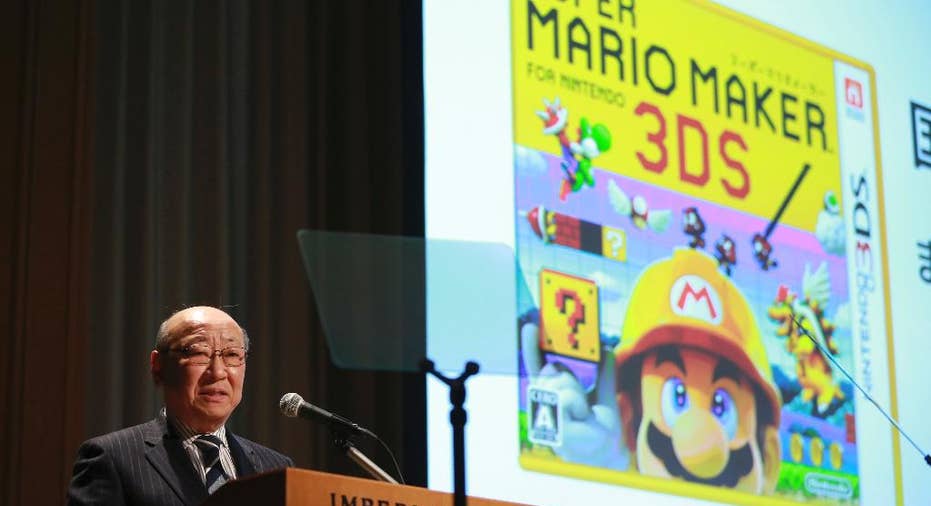Nintendo sticks to 2 million sales target for new Switch

TOKYO – Japanese video game maker Nintendo Co. stuck to its original target of selling 2 million Switch consoles in the first month after its launch, despite some anticipation the number may be raised because of brisk pre-orders.
Nintendo President Tatsumi Kimishima also told reporters Wednesday the company is committed to delivering more content for smartphones. He pointed to how the success of "Pokemon Go," a smartphone augmented-reality game, boosted sales of other Pokemon games as well as of 3DS machines.
That helped Kyoto-based Nintendo, which creates Super Mario games, report a better-than-expected October-December profit of 64.7 billion yen ($569 million), more than twice its same-period profit in the previous year.
Kimishima said interest was growing for Pokemon among young children, including those who had never played the game before but were now playing with parents who grew up with Pokemon. Making Nintendo games available on smart devices was also wooing younger players, he said.
"Whether we can get them to buy the second or third game software is our challenge," Kimishima said.
Nintendo resisted switching to games on cellphones for years, fearing that could erode sales of its own consoles. But it made its big push into mobile with "Super Mario Run" for the iPhone, which launched late last year. It now has recorded 78 million downloads, according to the company.
Nintendo game designer Shigeru Miyamoto said he had not anticipated such a strong reception for "Pokemon Go" because responses were lukewarm when he showed it at events ahead of its launch. Once it went online, "the reaction was huge," he said.
"This is so unpredictable," Miyamoto added. "Smartphones are an important part of our business."
The Switch, the first major hybrid console-and-hand-held game device, goes on sale March 3. It costs $299.99, more expensive than many had hoped.
But Kimishima said the company did not want to go into the red.
It has been common in the past for game makers to keep prices low, even taking a loss on each machine sold, in hopes of boosting sales and making up for the loss later with game software sales.
___
Follow Yuri Kageyama on Twitter at https://twitter.com/yurikageyama
Her work can be found at http://bigstory.ap.org/content/yuri-kageyama



















